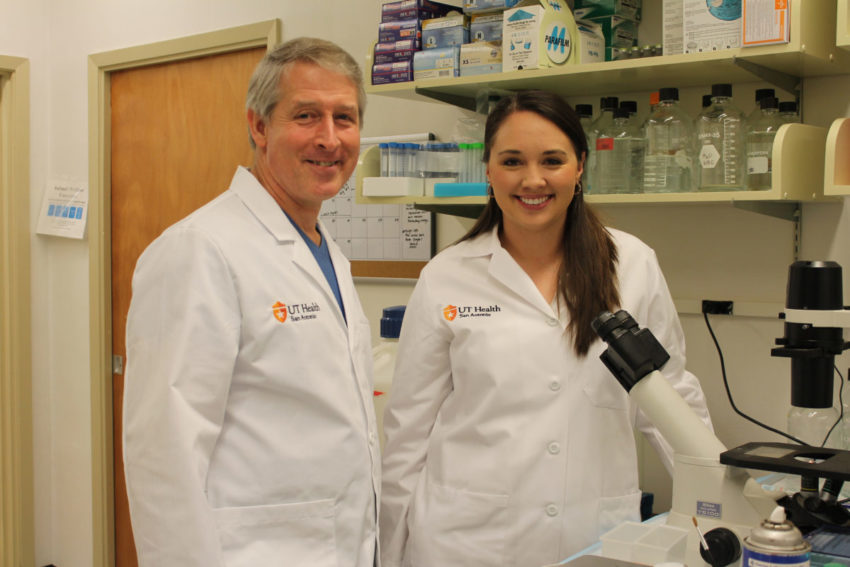The Cancer Prevention & Research Institute of Texas has awarded David Morilak, Ph.D., from UT Health San Antonio, a research award of $899,547. The funds will be used to study mechanisms and new treatments for cognitive impairment associated with a type of hormone treatment used in men with prostate cancer.
Dr. Morilak is a professor in the Department of Pharmacology, director of UT Health San Antonio’s Center for Biomedical Neuroscience and a member of the Mays Cancer Center, the newly named center of the UT Health San Antonio MD Anderson Cancer Center.
Cognitive impairment, including problems with memory, concentration, recalling where things are and making decisions, is a serious consequence for prostate cancer survivors who have received androgen deprivation therapy.
Studies that show prostate cancer patients who have undergone androgen deprivation therapy (ADT) have structural and functional deficits in the hippocampus, part of the brain that facilitates spatial learning and memory. This treatment also is associated with deficits in another region of the brain that works with the hippocampus called the medial prefrontal cortex, which is involved in many complex cognitive processes.
“There are no satisfactory treatments for cognitive impairment after ADT,” Dr. Morilak said. His team will investigate the mechanisms in the hippocampus that are involved in spatial memory impairment after ADT and test a potential new therapy involving a novel antidepressant drug, vortioxetine.
“Vortioxetine has actions that are different from other antidepressants and the drug has been shown to have positive effects specifically on cognitive impairment in depression,” he said.
The research team will use a combination of approaches to study cognitive impairment after ADT in a rat model, using a behavioral test that models the spatial memory deficit seen in prostate cancer patients after having had this therapy. The scientists will examine structural changes to nerve cells of the hippocampus, functional changes in the medial prefrontal cortex and changes in gene expression that might account for the loss of function in the medial prefrontal cortex. Finally, the researchers will test the viability of vortioxetine to reverse the effects of cognitive impairment in the animal model.
“The results of this project will help us identify mechanisms underlying cognitive impairment after ADT that may be viable therapeutic targets. The project will also inform a potential new use for vortioxetine in treating cognitive impairment after ADT. And ultimately, our results will contribute to improving the quality of life for prostate cancer survivors treated with ADT,” Dr. Morilak said.
Dr. Morilak’s project was one of 49 new academic research grants and eight prevention grants totaling more than $73.5 million awarded Feb. 21.


